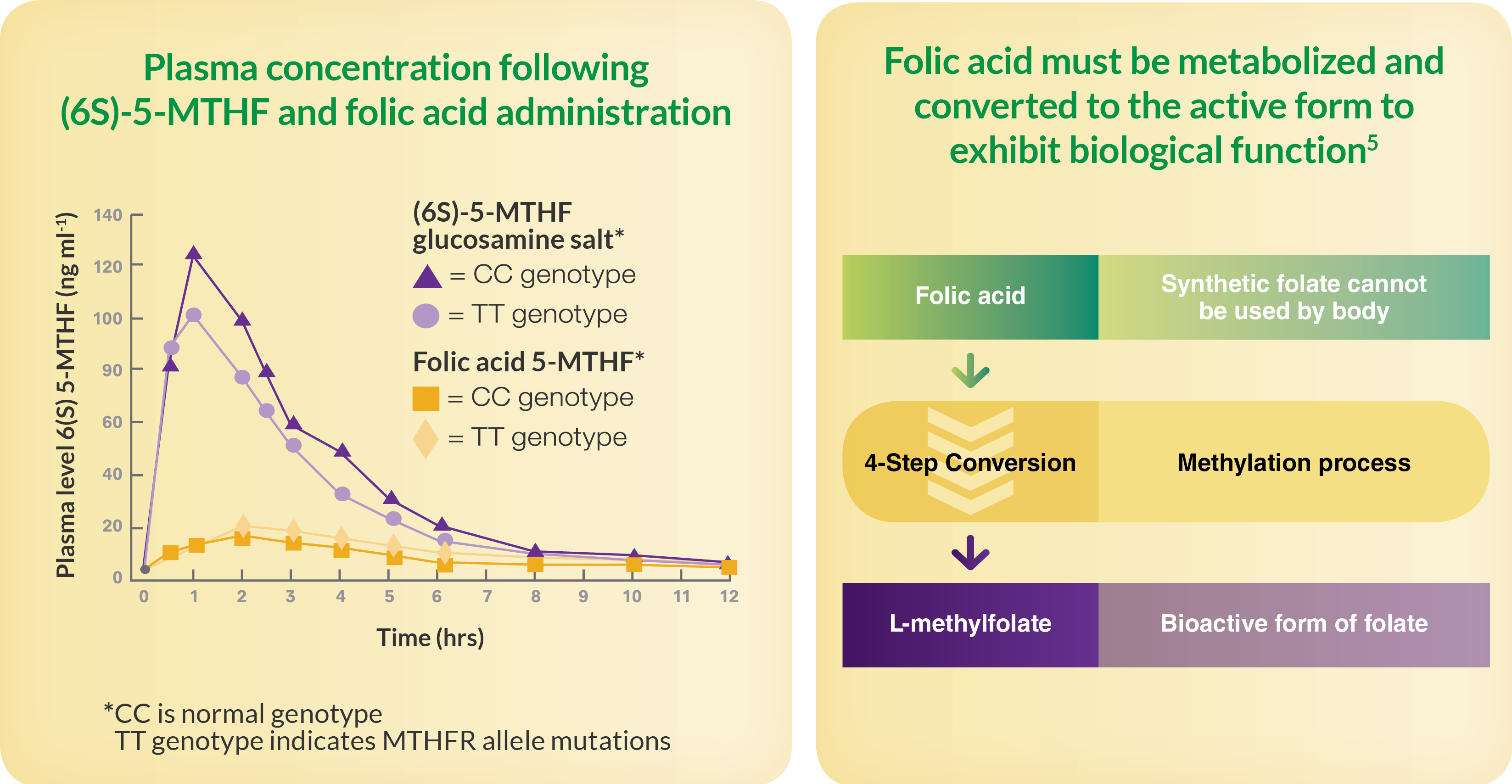
Folic acid bioavailability is decreased by MTHFR polymorphisms in 53% of women6,7
MTHFR stands for methylenetetrahydrofolate reductase, which is an enzyme involved in the metabolism of folate by catalyzing 5,10-methylenetetrahydrofolate to 5-methyltetrahydrofolate.3 The gene which codes for the reductase enzyme is a polymorphic gene with more than 50 variants known. The most notable mutation is a missense mutation at codon 667. Individuals with the wildtype homozygous CC genotype for the gene maintain the ability to metabolize folate to the usable form, L-5-methyltetrahydrofolate. Some individuals may be heterozygous CT, while others may be homozygous TT for the gene. The substitution from C->T changes the amino acid made, making valine instead of alanine which impairs with the resulting MTHFR activity.3 Therefore, those individuals with the CC genotype are able to metabolize folate much better, compared to those with the T mutation. Since folate is paramount in the neural tube closure and prevention of neural tube defects in the developing fetus, a variant (677C->T) in the MTHFR gene is the most established genetic risk factor for neural tube defects (NTDs).3 In addition, proper folate metabolism is vital in red blood cell regeneration which is important in pregnant women to prevent iron deficiency as their blood volume increases. Quatrefolic® – (6s)-5-methyltetrahydrofolate – is the already bioavailable form of folate, which means it does not require MTHFR for metabolism and absorption. This is advantageous because women with the MTHFR genetic variants may enjoy the absorbable power of Quatrefolic®.
(6s)-5-methyltetrahydrofolate glucosamine salt is almost 7x more bioavailable than folic acid at peak1
- Significant increase in plasma folate over 24 weeks vs folic acid, equimolar 400 mcg folic acid (P≤0.05)2
- Bypasses the 4-step folic acid to 5-MTHF conversion process, and does not require the MTHFR enzyme5
- Does not mask the signs or symptoms of vitamin B12 deficiency anemia4
- In US Hispanics, MTHFR C677T polymorphism is 22% more prevalent, consistent with a 24% higher rate of spina bifida6,7

Healthy levels of folate correlate to healthier, fuller term pregnancies and healthier babies
- Miscarriage risk is significantly increased in women with low folate6,8 – In spontaneously aborted fetuses, the rate of NTDs is 10x that of live births8
- Preeclampsia and placental abruption are associated with increased maternal homocysteine8
- Preterm birth (3x risk), and low birth weight (P< 0.05) are associated with low folic acid levels8
Pay no more than $20 per script* with our
eVoucherRx™ Savings Program – No Coupon Required!
Sign up for news and future savings
